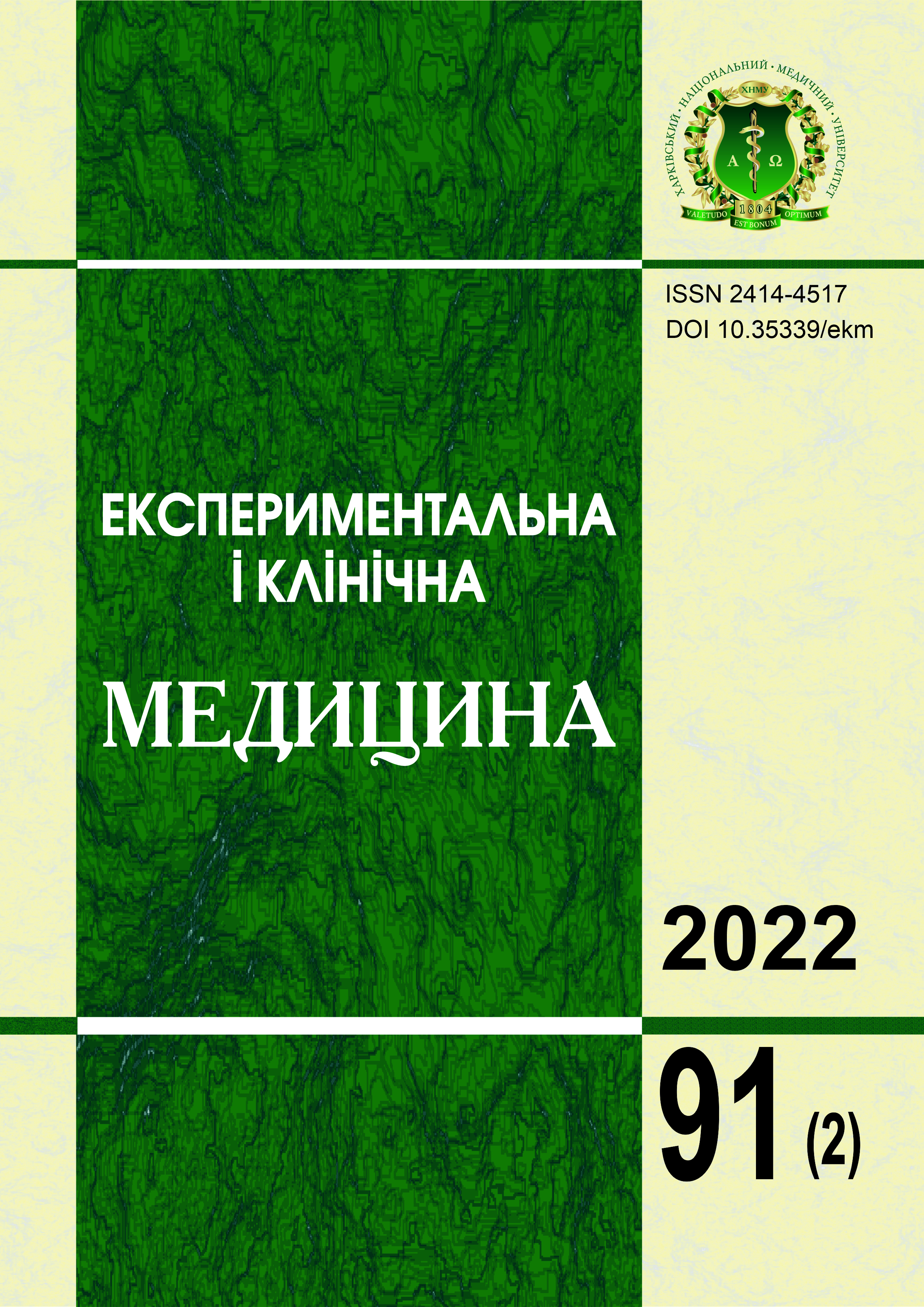Abstract
The high prevalence of acute peritonitis, its unpredictable course, and the rapid development of systemic dysfunctions necessitate further study of the disease. It is relevant to use the principle of personalized medicine, which is based on the selection of diagnostic, therapeutic and preventive means taking into account the patient's genetic, physiological, biochemical and other characteristics. The paper presents data on the diagnosis and treatment of acute peritonitis in 246 patients who, in addition to standard clinical, biochemical, immunoenzymatic and genetic studies, were conducted to determine the role of proinflammatory cytokines (IL1β) in the pathogenesis of the inflammatory process and the development of its complications. The dependence of the manifestations of inflammation and it’s spread on the concentration of IL1β in the blood and variants of the IL1β gene (‒511C/T), which regulates its secretion, is shown. The processes of peroxidic oxidation, antioxidant protection, unlimited proteolysis, fibrinolytic activity in the implementation of systemic reactions in peritonitis were studied, and their individual variability was shown. On the basis of the conducted research, the stages of surgical interventions, drug treatment schemes and proposed methods of prevention of various complications have been improved. This approach to diagnosis, forecasting the course of acute peritonitis, and the choice of treatment tactics is personalized and provides an opportunity to significantly improve the results of treatment of such patients and reduce mortality.
Keywords: peritonitis, genetic studies, systemic inflammatory reactions, prognosis.
References
Кryvoruchko ІА, Zhukov VІ, Povelichenko МS, Аndreyeshchev SА. Prognostic significance of indices of endogenous intoxication and of a monooxygenase system on the stages of surgical treatment in patients, suffering abdominal sepsis. Clinical surgery. 2014;3(856):5-9. Available at: https://hirurgiya.com.ua/index.php/journal/issue/view/74/3-2014 [in Ukrainian].
Lyfshyts YuZ, Zaichenko PA, Valetskyi VL, Mykhalchevskyi PS, Fedoseev HIu. Laparostomyia v sochetanyy s vakuum-terapyei v kompleksnom lechenyy vtorychnoho heneralyzovannoho perytonyta [Laparostomy combined with vacuum therapy in complex treatment of secondary generalized peritonitis]. Surgery of Ukraine. 2012;2(42):37-40. [In Ukrainian].
Polianskyi IYu, Moroz PV, Moskaliuk VI, Andriiets VV, Grynchuk AF. Treatment of peritonitis ‒ the way from evidence-based to personalized medicine. Kharkiv surgical school. 2017;1(82):59-64. Available at: https://surgical-school.com.ua/index.php/journal/issue/view/ 31/1-2017-pdf [in Ukrainian].
Khajtovych MV. Personalized medicine: current situation and perspectives. Ukrainian Scientific Medical Youth Journal. 2015;2(88):6-11. Available at: http://nbuv.gov.ua/UJRN/Unmmj_2015_2_3 [in Ukrainian].
Fometescu SG, Costache M, Coveney A, Oprescu SM, Serban D, Savlovschi C. Peritoneal fibrinolytic activity and adhesiogenesis. Chirurgia (Bucur). 2013;108(3):331-40. PMID: 23790781.
Polianskij IYu, Moroz PV, Moskalyuk V. Optimization of theraputical tactics in inflammatory processes in peritoneal cavity due to the genetical determined disorders of immunologic reactivity. Arta Medica. 2015;3(56):123.
Hoshino N, Endo H, Hida K, Kumamaru H, Hasegawa H, Ishigame T, et al. Laparoscopic Surgery for Acute Diffuse Peritonitis Due to Gastrointestinal Perforation: A Nationwide Epidemiologic Study Using the National Clinical Database. Ann Gastroenterol Surg. 2021;6(3):430-44. DOI: 10.1002/ags3.12533. PMID: 35634193.
Xia X, Lyu J, Cai X, Hu YL, He F, Li GM, Yang HM. Case Report of Acute Peritonitis with Blood Infection of Neisseria meningitidis. Biomed Environ Sci. 2022;35(2):151-4. DOI: 10.3967/bes2022.021. PMID: 35197181.
Maeda H, Endo H, Ichihara N, Miyata H, Hasegawa H, Kamiya K, et al. Correlation between surgical mortality for perforated peritonitis and days of the week for operations: A retrospective study using the Japanese National Clinical Database. Am J Surg. 2022;224(1 Pt B):546-51. DOI: 10.1016/j.amjsurg.2022.02.038. PMID: 35210064.

This work is licensed under a Creative Commons Attribution-NonCommercial-ShareAlike 4.0 International License.

